Advanced Business Communication: Assignment on Models and Skills
VerifiedAdded on 2022/12/26
|6
|846
|94
Homework Assignment
AI Summary
This assignment solution addresses key concepts in business communication, including Toulmin's model of argumentation, critical thinking skills, and the differences between influence and persuasion. The solution details the six phases of Toulmin's model (claim, evidence, warrant, backing, rebuttal, and qualifier), and identifies five critical thinking skills (reasoning, evaluating, problem-solving, decision-making, and analyzing). The document clarifies the distinctions between influence and persuasion, highlighting that persuasion aims to alter beliefs while influence involves affecting others through various interpersonal techniques. Furthermore, the solution outlines the four essential parts of an essay: introduction, body, conclusion, and references. This assignment is designed to provide a comprehensive understanding of the core elements of effective business communication.
1 out of 6
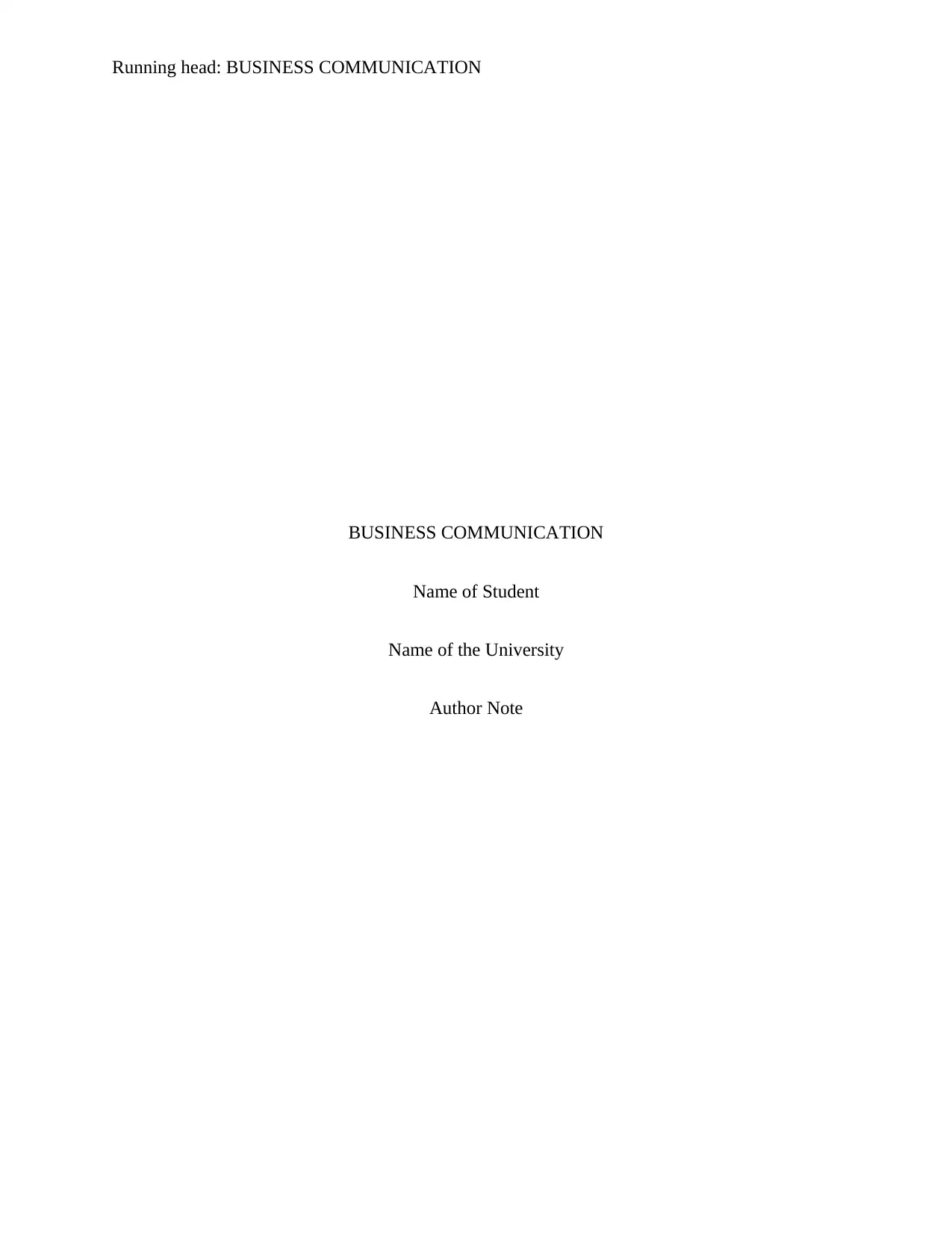
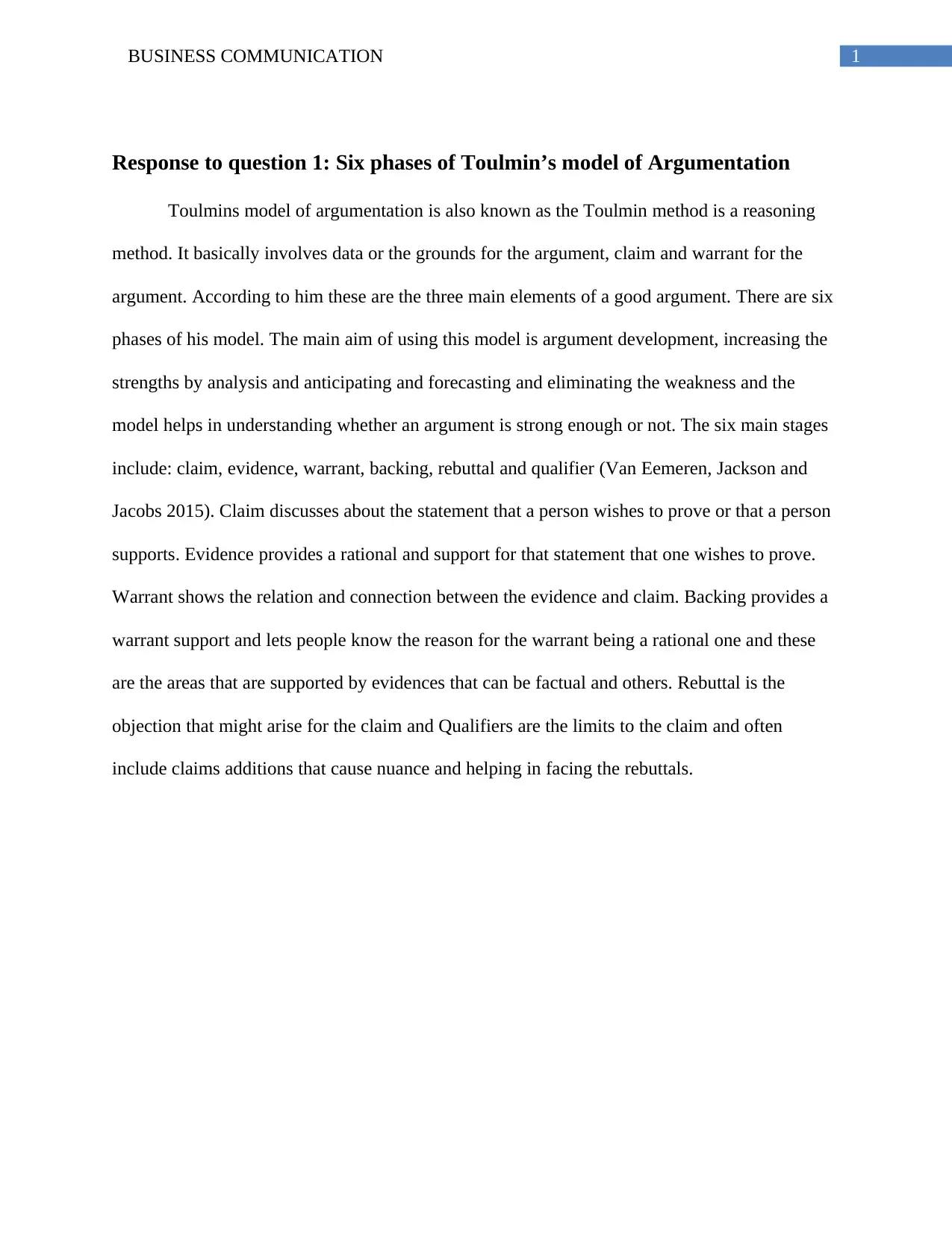
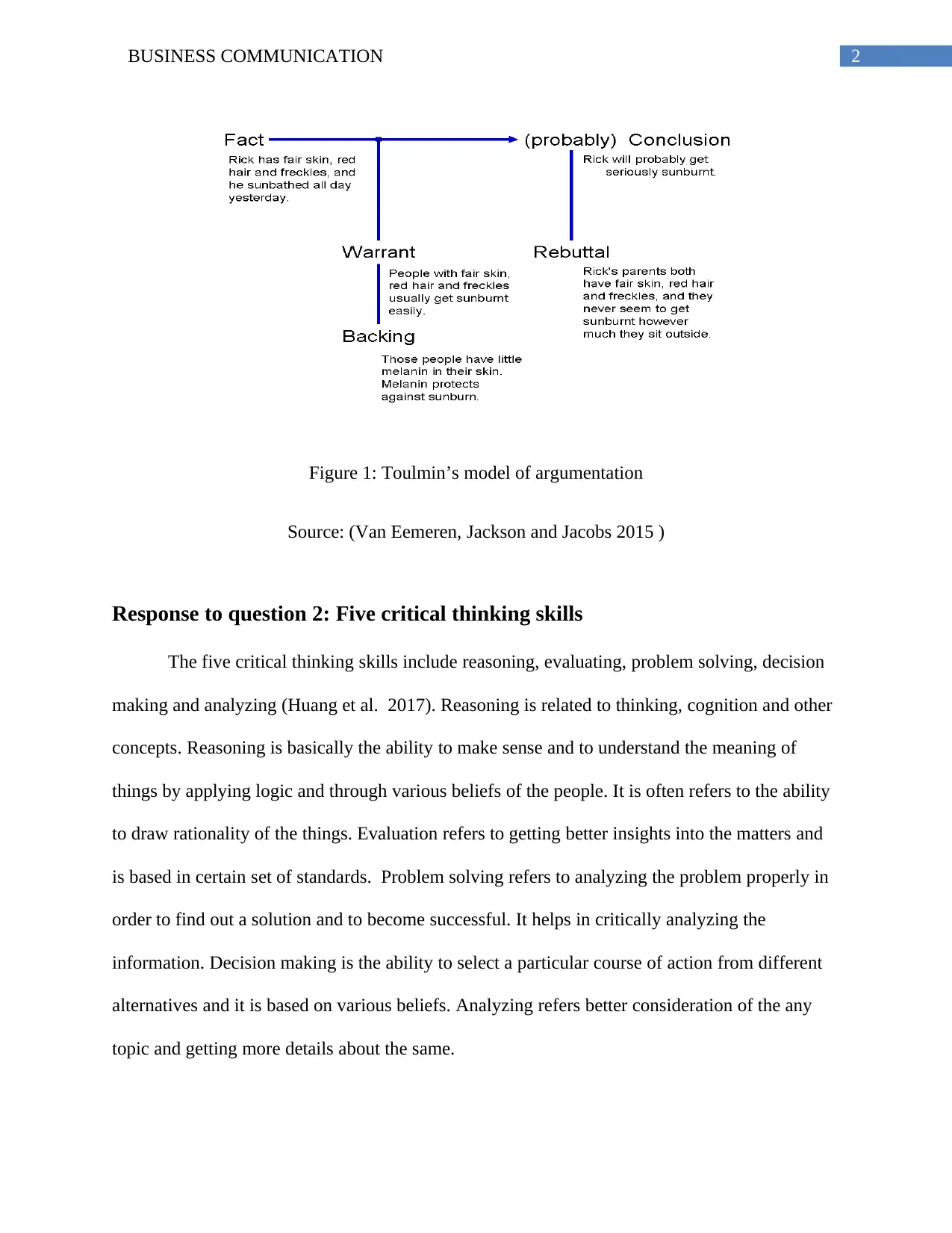

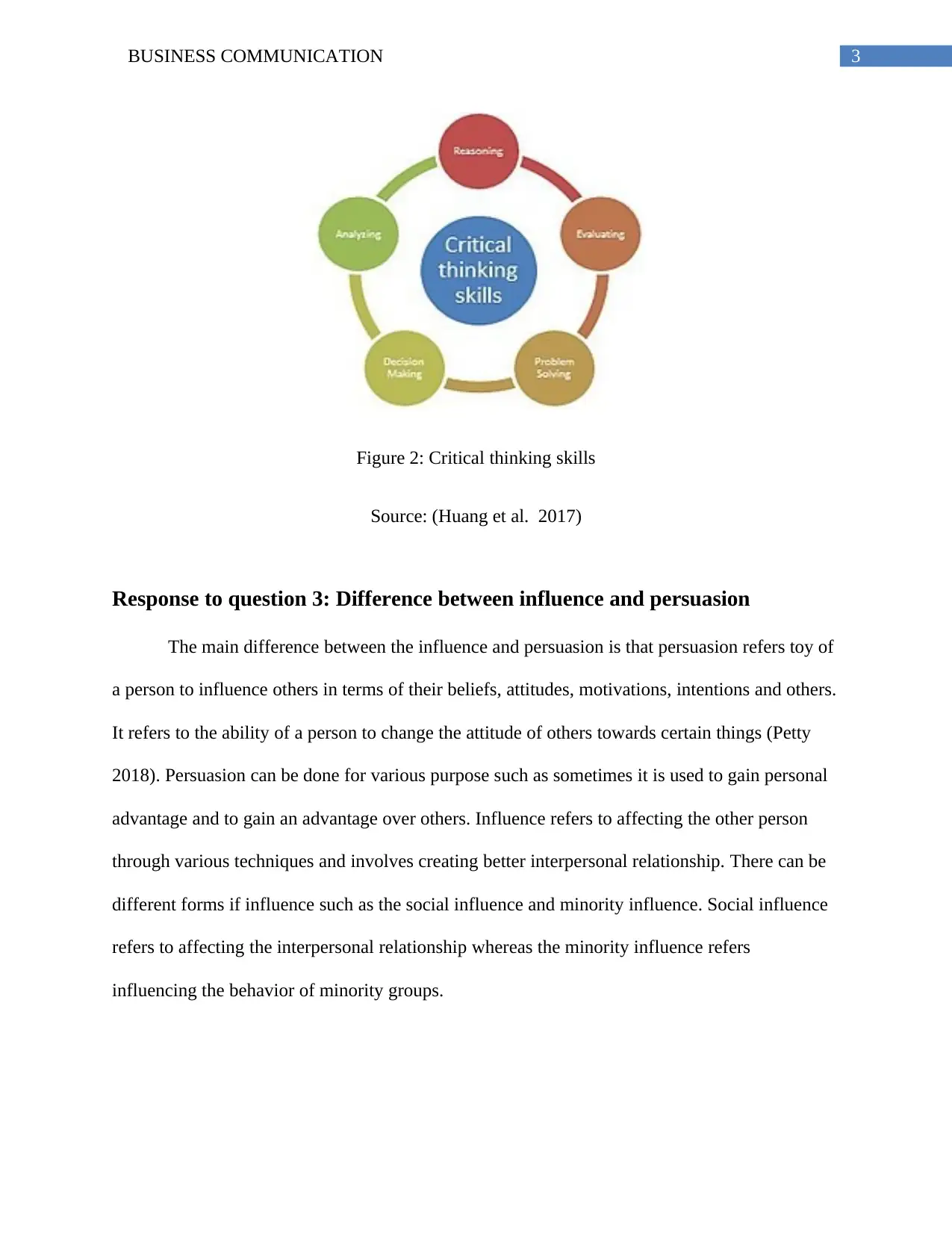
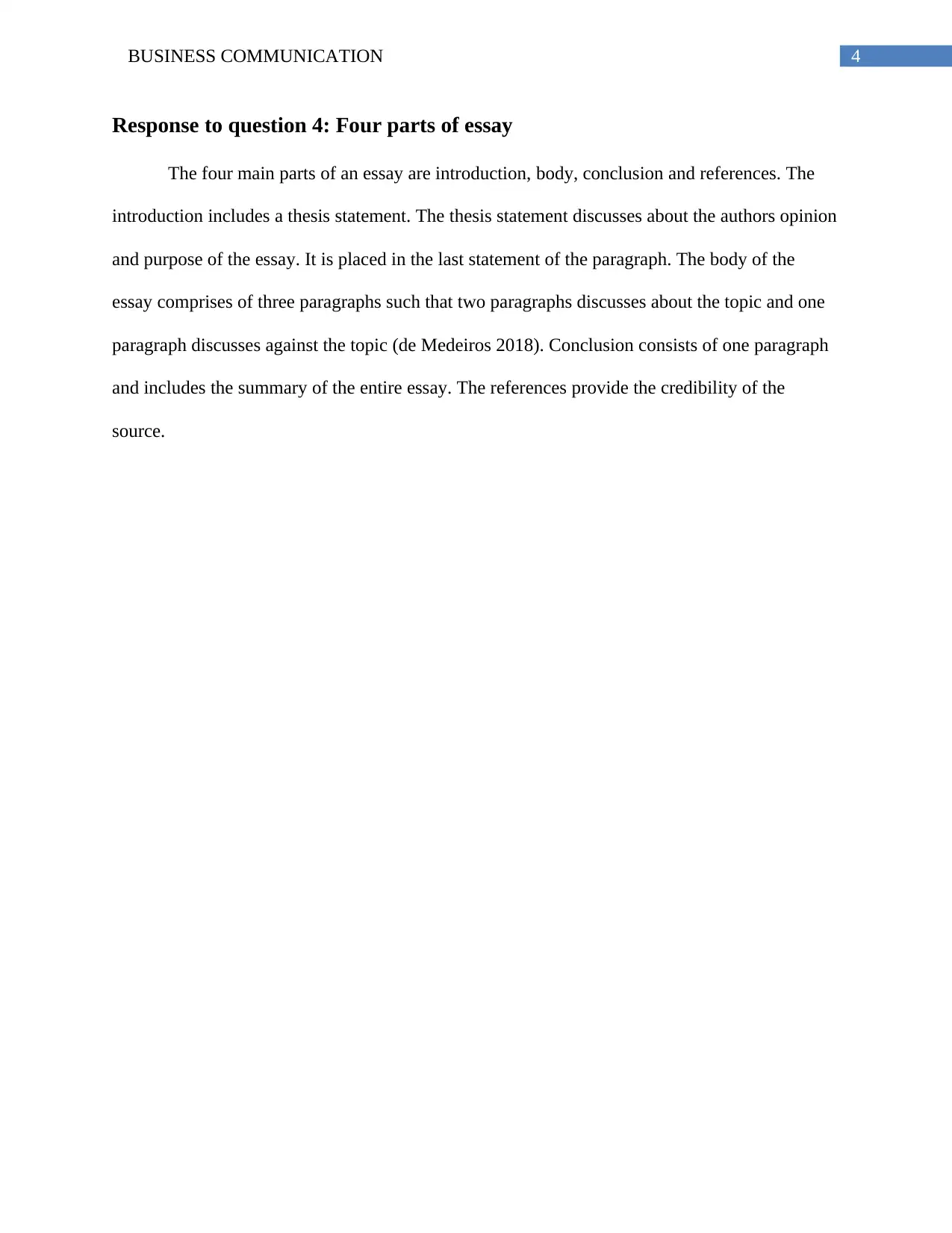
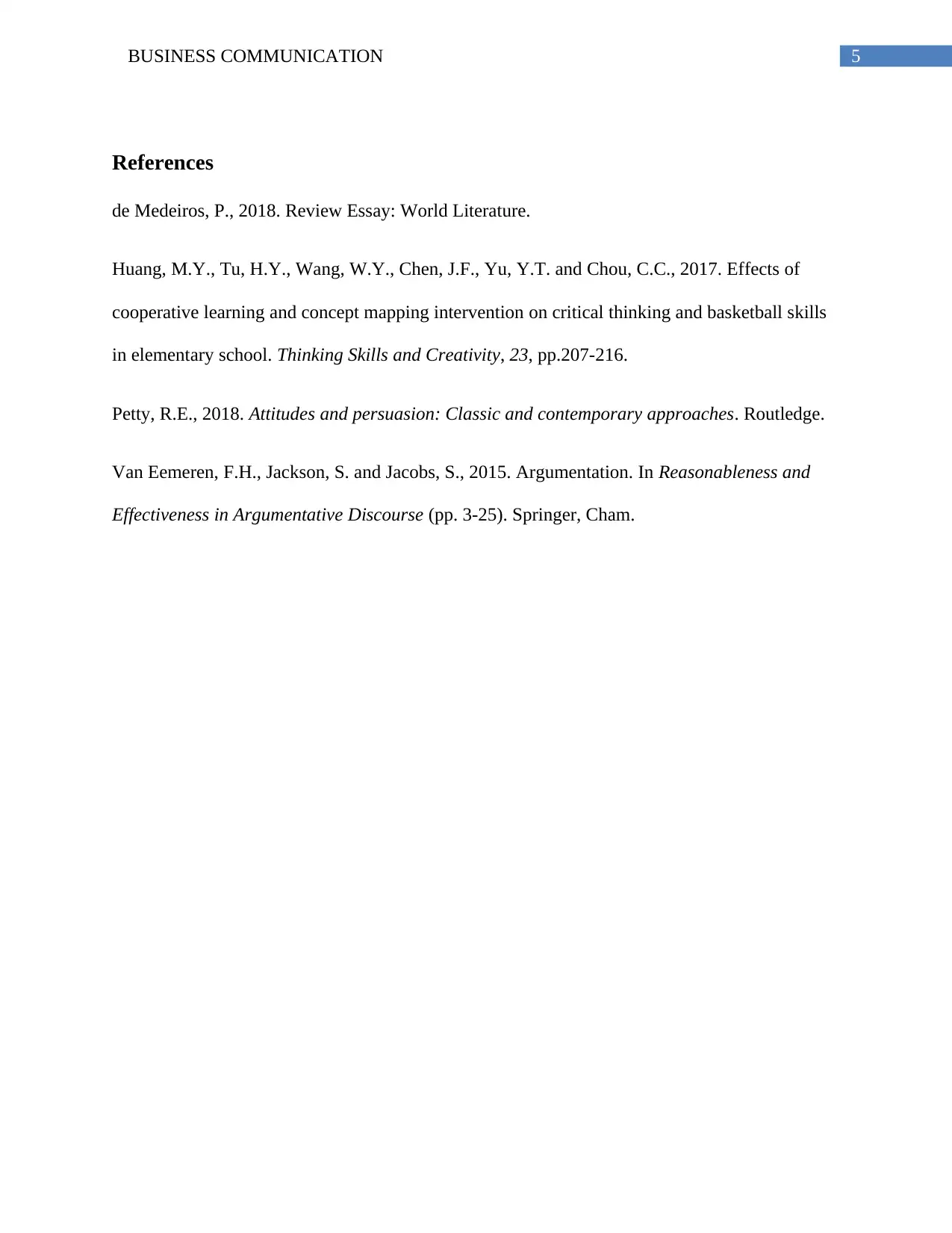
![[object Object]](/_next/static/media/star-bottom.7253800d.svg)